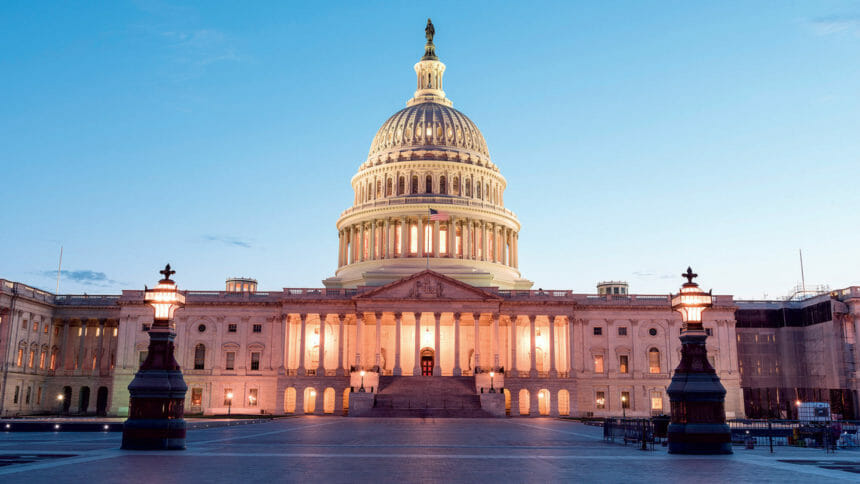
Bills that would reauthorize the Older Americans Act and improve improve education and training in geriatrics passed in the House of Representatives on Monday. They now move to the Senate for consideration.
Almost 11 million older adults and their paid and unpaid caregivers would be supported by the bipartisan Dignity in Aging Act (H.R. 4334), which would amend and reauthorize for five years the Older Americans Act, according to Rep. Suzanne Bonamici (D-OR), the legislation’s sponsor.
The most recent reauthorization of the OAA took place in 2016.
“Unfortunately, funding for the Older Americans Act lags far behind the increasing demand for its services,” Bonamici said Monday on the House floor. “Although the population of Americans over age 60 has grown more than 60% since 2001, OAA funding has only grown by about 20%. Adjusting for inflation, this means that OAA funding has declined by about 16%.”
The act would authorize record levels of funding for OAA programs, said Bonamici, chair of the Education and Labor Committee’s Subcommittee on Civil Rights and Human Services, which has jurisdiction over OAA. “Under this bill, all OAA programs are eligible to immediately receive a 7% increase in funding and a 6% increase each year thereafter. This will result in a more than 35% total increase in program funding over the five-year reauthorization program, restoring OAA funding to the pre-recession baseline.”
LeadingAge President and CEO Katie Smith Sloan, in a statement issued from the group’s annual meeting in San Diego, called the House endorsement of the bill “significant” because of the services it supports for older adults as well as addressing “a serious crisis needing attention from our policymakers as our population ages: the need for more paid caregivers, from home health and personal care aides to social workers.”
“America’s projected need for 2.5 million long-term care workers by 2030 is our members’ primary concern. LeadingAge, on their behalf, advocated for and collaborated with committee members to ensure that the Dignity in Aging Act will implement opportunities to address the need for more workers through job training and placement services,” Sloan said.
Among the bill’s other features, Bonamici said:
- “H.R. 4334 strengthens our focus on combating social isolation, which greatly increases the risk of stroke, heart disease, dementia and premature death. It does so by including social isolation screening into the supportive services that seniors receive,” Bonamici said.
- The bill also “allows for demonstration funds to be used for multi-generational collaboration projects that provide opportunities for older individuals to participate in multi-generational activities and civic engagement activities,” she said.
EMPOWER for Health Act
The House also passed — unanimously — the bipartisan Educating Medical Professionals and Optimizing Workforce Efficiency and Readiness (EMPOWER) for Health Act of 2019 (H.R. 2781), which would reauthorize the Title VII health professions workforce programs and provides almost $2 billion in funding over the next five years.
The act in part would award grants to establish or operate geriatrics workforce enhancement programs and promote the career development of academic geriatricians or other academic geriatrics health professionals. One of the potential focus areas is education about Alzheimer’s disease and related dementia for families and caregivers of older adults, direct care workers, health professions students, faculty and providers.
“We have a rapidly growing population of older Americans. This legislation will address the extreme shortage of health professionals expertly trained for care for the rapidly growing and diverse population of older Americans,” said Rep. Jan Schakowsky (D-IL), one of the bill’s sponsors, said from the House floor.
Schakowsky, a senior chief deputy whip and chair of the Energy and Commerce Consumer Protection and Commerce subcommittee, and Rep. Michael C. Burgess, M.D. (R-TX), introduced the bill in May, and it had passed the Committee on Energy and Commerce unanimously in July.



